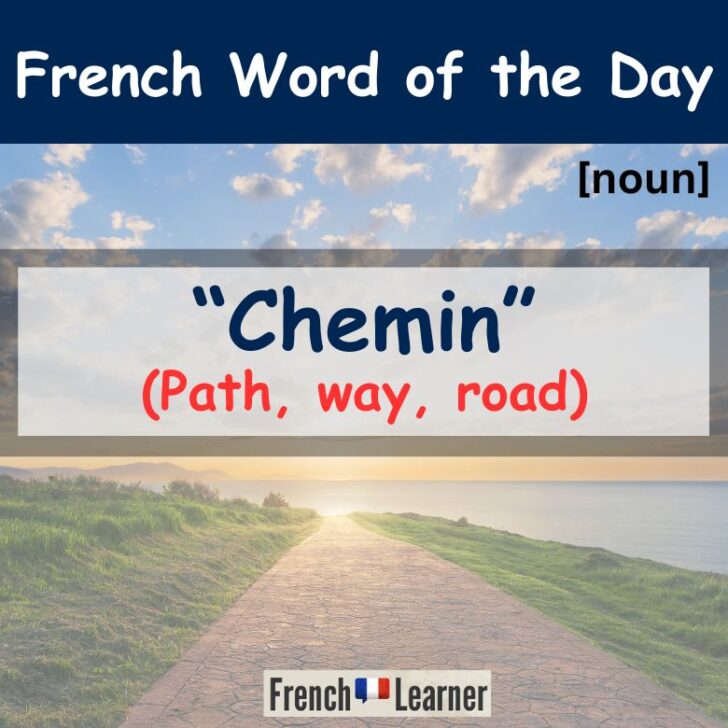In today’s lesson we’ll have a look at the word chemin, which means both “path”, “way” and “road”. For example, je connais le chemin (I know the way).
chemin
path, way

Chemin meaning and translation
Word origin
The French noun chemin comes from Latin camminus, which means “path” or “way”.
Example sentences
As mentioned, the word chemin has several translations, all of which center on the idea of a road or pathway.
Ce chemin mène au centre-ville.
This road leads to the center of town.
The expression à mi-chemin entre translates to “halfway between”. The French mi equates to “mid” in English. For example, mi-juin means “mid June”.
Nous habitons à mi-chemin entre Paris et Lille.
We live halfway between Paris and Lille.
In French, chemin de randonnée means hiking trail. A synonym for hiking trail is sentier de randonnée.
Il y a de très bons chemins de randonnée à Chamonix.
There are very good hiking trails in Chamonix.
The French term for the Camino de Santiago, a multi-week pilgrimage walk through Spain and France, is the chemin de Comostelle. Santiago de Compostela is a city in northwestern Spain where the pilgrimage ends. Interestingly, the French word chemin and Spanish word camino one in the same.
Sylvie passe quelques mois en Espagne pour faire le chemin de Compostelle.
Sylvie is spending a few months in Spain to do the Camino de Santiago.
In the figurative sense, the expression au but du chemin translates literally to “at the end of the road” and means “in the end”. In this sentence, tu réussiras (you’ll succeed) is an example of the French future tense.
Si tu travailles fort, au bout du chemin tu réussiras !
If you work hard you’ll succeed in the end.
We cannot end this post on the word chemin without mentioning the famous expression:
Tous les chemins mènent à Rome.
All roads lead to Rome.

Related lessons
- Rue – street, road
- Projet – plan, project
- Pièce – room, piece, coin
- Boîte – box, can
- Vacances – vacation

